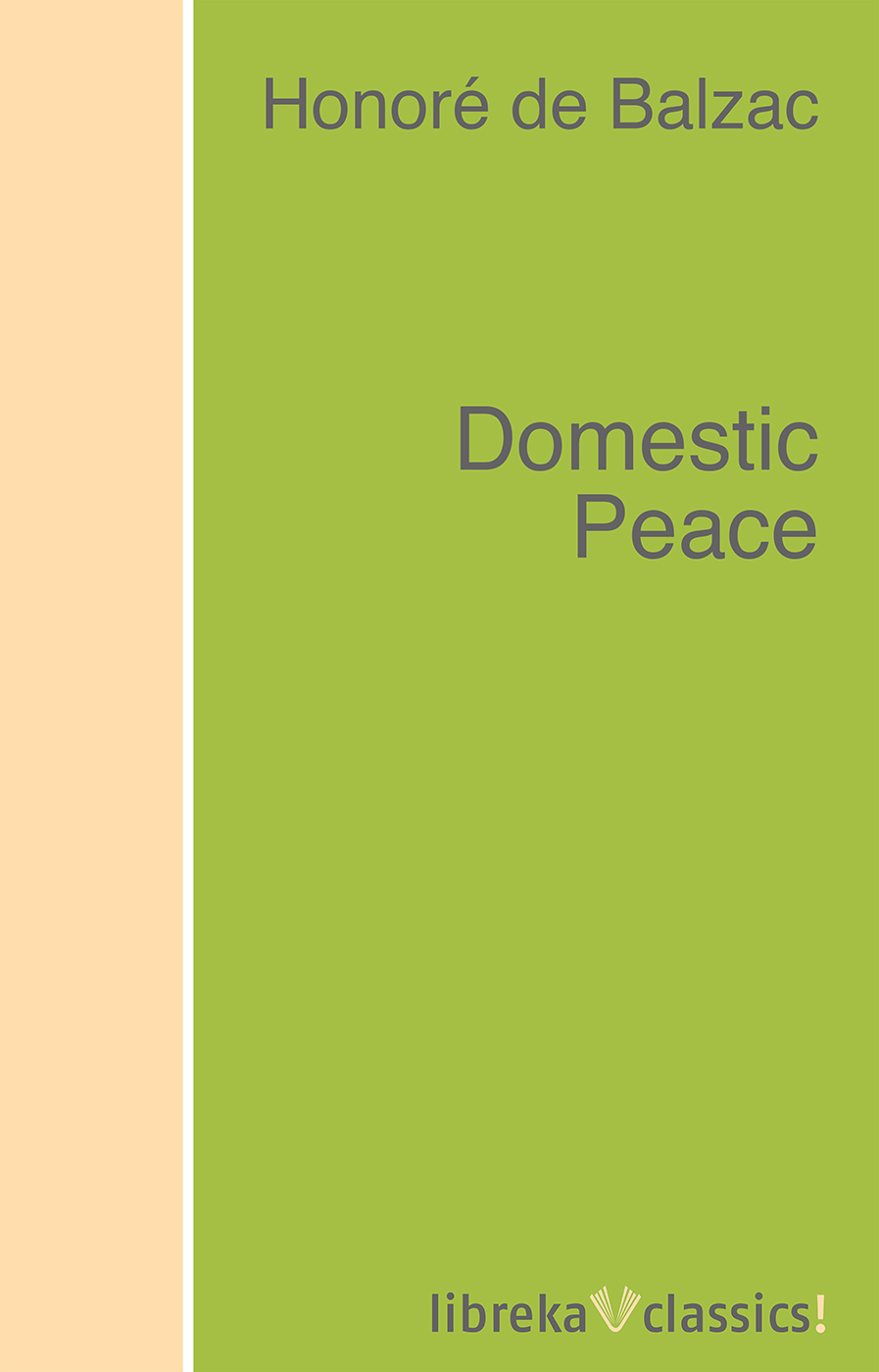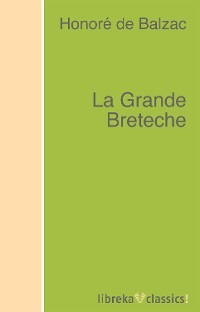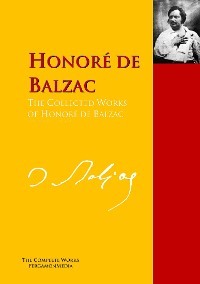
Полная версия
Domestic Peace


Titel: Domestic Peace
von William Shakespeare, H. G. Wells, Henry Van Dyke, Thomas Carlyle, Oscar Wilde, Joseph Conrad, Henry James, Anthony Hope, Henry Fielding, Giraldus Cambrensis, Daniel Defoe, Grammaticus Saxo, Edgar Rice Burroughs, Hugh Lofting, Agatha Christie, Sinclair Lewis, Eugène Brieux, Upton Sinclair, Booth Tarkington, Sax Rohmer, Jack London, Anna Katharine Green, Sara Jeannette Duncan, Xenophon, Alexandre Dumas père, John William Draper, Alice Christiana Thompson Meynell, Bram Stoker, Honoré de Balzac, William Congreve, Louis de Rougemont, Nikolai Vasilievich Gogol, Rolf Boldrewood, François Rabelais, Lysander Spooner, B. M. Bower, Henry Rider Haggard, William Hickling Prescott, Lafcadio Hearn, Robert Herrick, Jane Austen, Mark Twain, Mary Roberts Rinehart, Charles Babbage, Kate Douglas Smith Wiggin, Frank L. Packard, George Meredith, John Merle Coulter, Irvin S. Cobb, Edwin Mims, John Tyndall, Various, Charles Darwin, Sidney Lanier, Henry Lawson, Niccolò Machiavelli, George W. Crile, Théophile Gautier, Noah Brooks, James Thomson, Zane Grey, J. M. Synge, Virginia Woolf, Conrad Aiken, Edna St. Vincent Millay, Helen Cody Wetmore, Ayn Rand, Sir Thomas Malory, Gustave Flaubert, Edmond Rostand, Charlotte Brontë, Edith Wharton, Giles Lytton Strachey, Myrtle Reed, Ernest Bramah, Jules Verne, H. L. Mencken, H. Stanley Redgrove, Victor Lefebure, Edna Lyall, John Masefield, Charles Kingsley, Robert Burns, Edgar Lee Masters, Victor [pseud.] Appleton, Ellis Parker Butler, Mary Lamb, Charles Lamb, Johann Wolfgang von Goethe, Kenneth Grahame, Charles Dickens, John Ruskin, John Galt, James J. Davis, Owen Wister, William Blades, Sir Hall Caine, Sir Max Beerbohm, Baron Edward John Moreton Drax Plunkett Dunsany, Bret Harte, E. Phillips Oppenheim, Thomas Henry Huxley, A. B. Paterson, John N. Reynolds, Walter Dill Scott, Hans Gustav Adolf Gross, T. S. Eliot, Walt Whitman, Arthur Ransome, Jane Addams, Elizabeth, David Lindsay, Helen Bannerman, Charles A. Oliver, J. M. Barrie, Robert F. Murray, Andrew Lang, Jerome K. Jerome, Francis Thompson, Sydney Waterlow, Andrew Dickson White, Benjamin N. Cardozo, Karl Marx, Edouard Louis Emmanuel Julien Le Roy, Margaret Hill McCarter, Sir Donald Mackenzie Wallace, Howard Trueman, L. M. Montgomery, Frank T. Bullen, Baron Alfred Tennyson Tennyson, Jonathan Nield, Henry Wadsworth Longfellow, Charles Reade, Ouida, Washington Irving, Benjamin Louis Eulalie de Bonneville, Sir Walter Scott, Stewart Edward White, Arthur Hugh Clough, Baron Edward Bulwer Lytton Lytton, C.-F. Volney, T. Troward, graf Leo Tolstoy, Christopher Morley, James Madison, Alexander Hamilton, John Jay, Gilbert White, Percival Lowell
ISBN 978-3-7429-1355-5
Alle Rechte vorbehalten.
Es ist ohne vorherige schriftliche Erlaubnis nicht gestattet, dieses Werk im Ganzen oder in Teilen zu vervielfältigen oder zu veröffentlichen.
DOMESTIC PEACE
By Honore De Balzac
Translated By Ellen Marriage and Clara Bell
Dedicated to my dear niece Valentine Surville.
DOMESTIC PEACE ADDENDUM
DOMESTIC PEACE
The incident recorded in this sketch took place towards the end of the month of November, 1809, the moment when Napoleon's fugitive empire attained the apogee of its splendor. The trumpet-blasts of Wagram were still sounding an echo in the heart of the Austrian monarchy. Peace was being signed between France and the Coalition. Kings and princes came to perform their orbits, like stars, round Napoleon, who gave himself the pleasure of dragging all Europe in his train—a magnificent experiment in the power he afterwards displayed at Dresden. Never, as contemporaries tell us, did Paris see entertainments more superb than those which preceded and followed the sovereign's marriage with an Austrian archduchess. Never, in the most splendid days of the Monarchy, had so many crowned heads thronged the shores of the Seine, never had the French aristocracy been so rich or so splendid. The diamonds lavishly scattered over the women's dresses, and the gold and silver embroidery on the uniforms contrasted so strongly with the penury of the Republic, that the wealth of the globe seemed to be rolling through the drawing-rooms of Paris. Intoxication seemed to have turned the brains of this Empire of a day. All the military, not excepting their chief, reveled like parvenus in the treasure conquered for them by a million men with worsted epaulettes, whose demands were satisfied by a few yards of red ribbon.
At this time most women affected that lightness of conduct and facility of morals which distinguished the reign of Louis XV. Whether it were in imitation of the tone of the fallen monarchy, or because certain members of the Imperial family had set the example—as certain malcontents of the Faubourg Saint-Germain chose to say—it is certain that men and women alike flung themselves into a life of pleasure with an intrepidity which seemed to forbode the end of the world. But there was at that time another cause for such license. The infatuation of women for the military became a frenzy, and was too consonant to the Emperor's views for him to try to check it. The frequent calls to arms, which gave every treaty concluded between Napoleon and the rest of Europe the character of an armistice, left every passion open to a termination as sudden as the decisions of the Commander-in-chief of all these busbys, pelisses, and aiguillettes, which so fascinated the fair sex. Hearts were as nomadic as the regiments. Between the first and fifth bulletins from the Grand Armee a woman might be in succession mistress, wife, mother, and widow.









